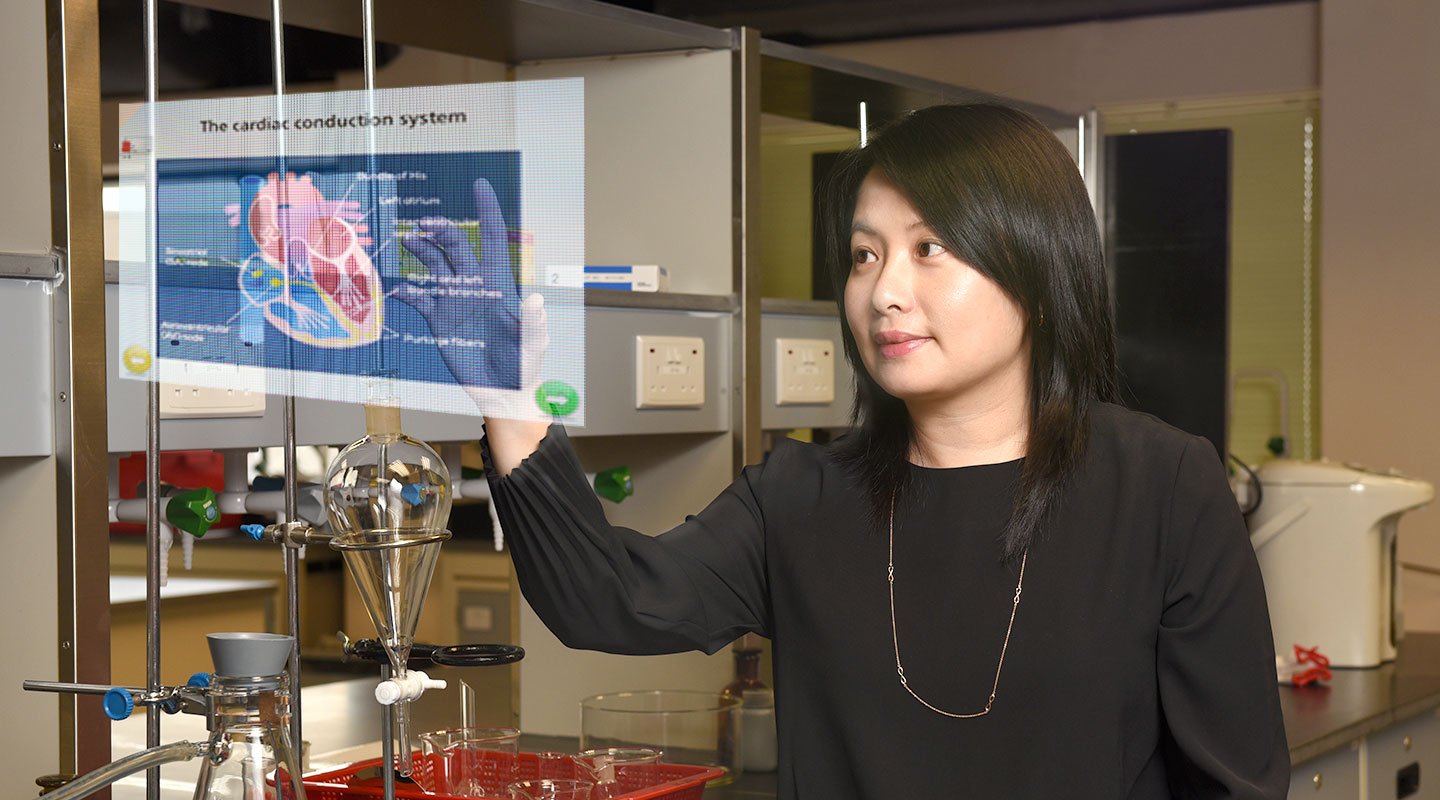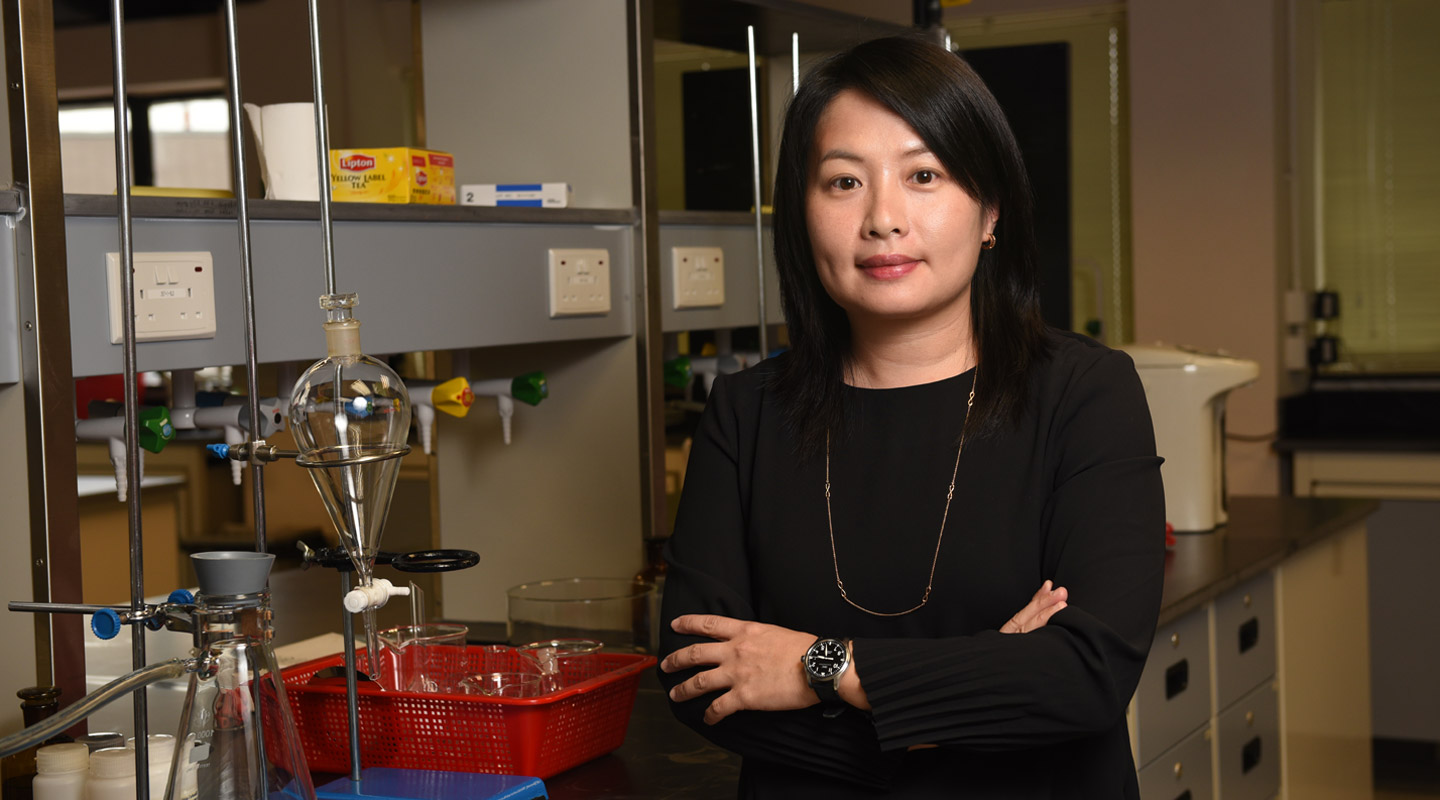Dear readers, With the launch of e-newsletter CUHK in Focus, CUHKUPDates has retired and this site will no longer be updated. To stay abreast of the University’s latest news, please go to https://focus.cuhk.edu.hk. Thank you.
The Age of Bite-size Teaching
Isabel Hwang flips the classroom of biomedical sciences

Dr. Isabel Hwang
Senior Lecturer of School of Biomedical Sciences
Recipient of Outstanding Education Award 2016, Faculty of Medicine
Recipient of Merit Award of e-Poster presentation at the13th Asia Pacific Medical Education Conference 2016
How did your past experience shape your determination for pedagogical excellence?
I love to stay flexible to accommodate students’ changing needs. My openness to changes can be traced to my days in London doing a master’s degree in organic chemistry. I often made bold attempts to try different methods with my lab mates from diverse cultural backgrounds to design new ways to synthesize some organic compounds useful for the pharmaceutical industry. It was fun, and sometimes full of laughter. As a teacher living in a constantly evolving era, I should embrace changes—especially in times of constraints—and be a role model to students.
You have been developing biomedical sciences coursewares since 2007. What motivates you?
Putting myself into students’ shoes, I think picturing the concepts in health sciences can help them better understand physiological mechanisms. I’m not denying the value of didactic lectures, but the use of 2D static images in lecture slides does have its limitations. For instance, the mechanism of how electrical impulses are generated in human neurons is an abstract concept. If my students can visualize the process by an animated story with voiceover, the learning efficacy can be enhanced. When I completed my first courseware in 2008, I was excited to find that my students were already asking for more.
What support did you receive during the development stage?
The grant schemes of the University such as Micro-Module Courseware Development Grant Schemes have financially supported the development of the coursewares. As most of the micro-modules developed contain audio and visual components from other sources, the clearing of copyright issues can be very time-consuming. Production of each micro-module can take a month, while testing and fine-tuning require one to two weeks. I’m very grateful to work with a team of approachable and professional colleagues from the Information Technology Services Centre and the Office of Medical Education. Without their technical support, I couldn’t have created such quality animated coursewares.

In your flipped classroom, how do the micro-modules facilitate quality in-class interaction and their learning motivation?
Micro-modules such as Health Sciences I are hosted on the Faculty’s website and the learning management system (LMS) Blackboard Learn for students to access for pre-lecture preparation. As some in-class lecture materials have been shifted to the micro-modules, more time is allowed for in-depth discussions in class. Students can now discuss simple case scenarios in lectures, which was not possible before. Flipped classroom is becoming a feature of the course. I’ve even uploaded all the modules on the cloud-based KEEP platform for open access.
How does the learning analytics help you evaluate students’ learning and enhance your teaching?
The analytics on Blackboard Learn helps me review individual students’ access rate of each micro-module at a glance anytime anywhere. It enables me to understand students’ learning progress and evaluate the courseware projects.
What is your secret in developing micro-modules which engage your large classes?
Initial planning is very important. Team up with relevant expertise when a topic is selected. Students are interested in real-life scenarios, particularly those that may relate to their own state of health. When developing an animated courseware which mimics a real-life scenario, however, be prepared to juggle between time, budget and the actual outcome.
How do you strike a work-life balance?
Sports help to relax my mind and body, and I’m particularly interested in skiing and playing tennis. No matter how occupied I am, I try to arrange at least one skiing trip each year to pamper myself. In the summer, I usually spend at least a week in Wimbledon to watch tennis.
This article was originally published in No. 488, Newsletter in Dec 2016.